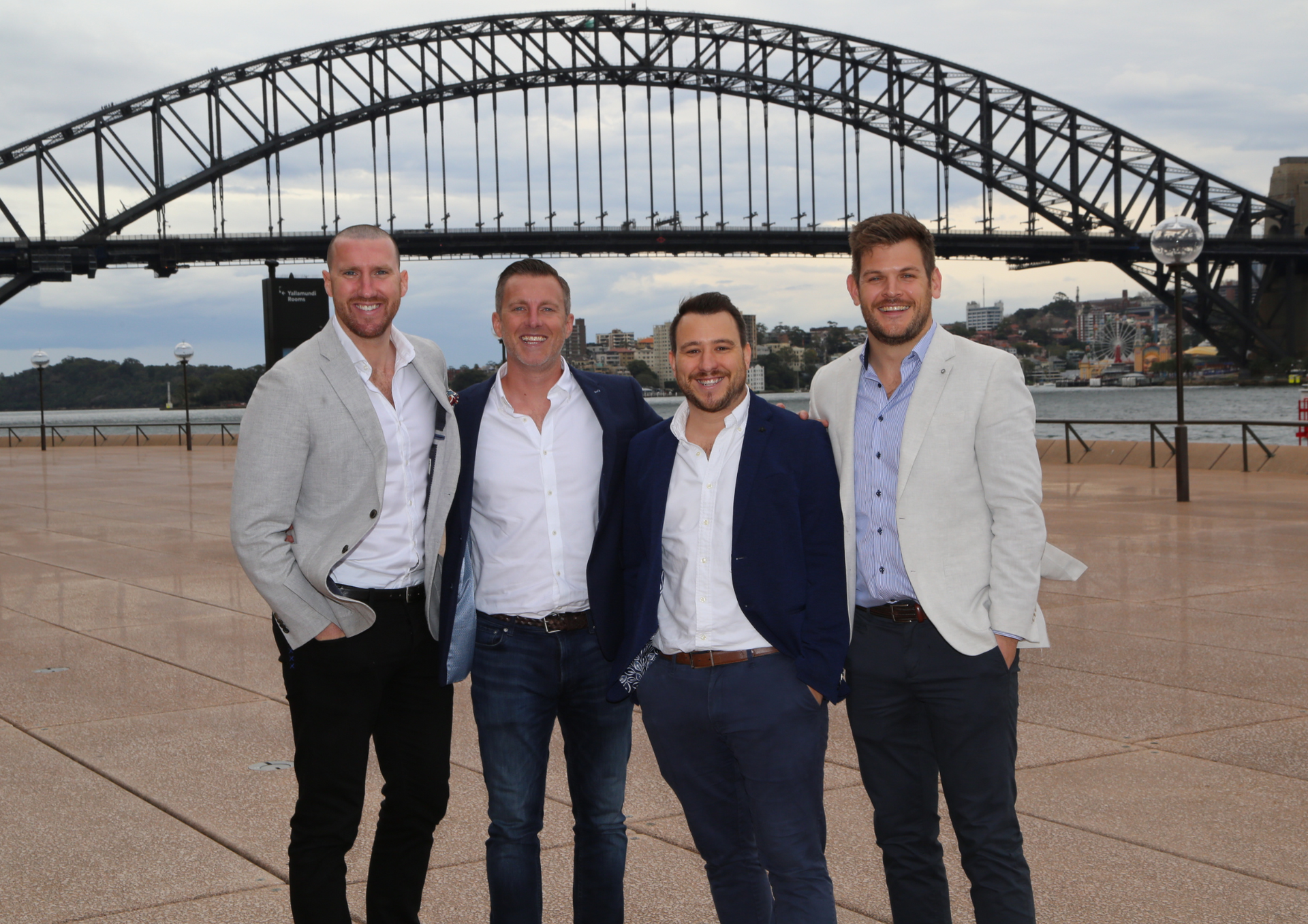IWD Webinar Recap - Cracking the code for women in sport
This International Women’s Day, we invited two women athletes to share their experiences in a traditionally male-dominated sport. Given the parallels between the tech industry and surfing, pro surfers Philippa Anderson and Rebecca Woods joined our webinar panel for a candid conversation about surfing’s journey to become more gender inclusive. You can watch the webinar here or keep reading for our recap
A quick intro to Rebecca Woods
Rebecca’s a professional surfer from Copacabana on the NSW Central Coast. She started surfing at around 12 years of age and fell in love with the calming sport. Rebecca says, when she first joined the line-up, it was dominated by men who weren’t overly receptive to the presence of women. Her older sister was bullied.
Despite the frosty reception, Rebecca started competing at 15. She won an Australian junior title at 16 and went on to become the World Junior Champion at 18 years of age. She stepped into the World Tour at 19 years of age in her first person-to-person competition with Layne Beachley, and reached Number 6 in the world rankings at the height of her career.
These days, Rebecca is a registered osteopath and Surf Coach.
A quick intro to Philippa Anderson
Philippa grew up along the beautiful coastline of Port Elizabeth, South Africa, starting her surfing journey at 8 years old. Philippa and her friend were the only two girls in the line-up back then, even competing in the Under-12 boy’s competition as there weren’t other options.
Her family migrated to Australia when Philippa was 13, settling at Newcastle. It was in Australia that she first saw other females surfing, surprised to see separate divisions for girls in the local competitions. Philippa’s won a few Australian titles, represented Australia at the ISA World Junior Games, was twice runner up in the World Junior Championships, and still competes in the World Challenger series.
When not surfing, Philippa runs her business, Philippa Anderson Surf School.
What gender-related obstacles have you experienced during your surfing career?
Rebecca says that sponsorship was a big obstacle for women in earlier days. Those lucky to get it were often required to jump through a million different hoops, like wearing a bikini while surfing despite the discomfort and body confidence issues that arose. It meant that impressionable young women coming through had to
navigate this sexualised bikini body culture without much support – something that the men never faced.
For Philippa, she entered the competitive circuit when the tides began changing, grateful for the slightly older surfers who first pushed back against sponsors demanding competition bikini-wear during contract negotiations. While the industry is still changing, women now are more empowered to stand up for themselves and their values without necessarily risking the sponsorship deal.
Another universal barrier they’ve both encountered is the gender inequity during competitions. Where poor surf conditions arose, the men’s events were often rescheduled for more favourable conditions and the women’s events were brought forward instead.
As the surfing boys used to say, “The surf’s no good – just put the girls on.”
What affect has a change of leadership had for women in surfing?
Inclusive leadership has been responsible for some big changes in world surfing over the past few years, none more prominent than equal competition money and the introduction of a women’s Pipeline event. The girls both pay credit to former pro-surfer Jessi Miley-Dyer who, in 2021, became the Head of Competition at the World Surf League (making her the second highest-ranking official), and who has been instrumental in driving change within the organisation. Additionally, there are now more women judges and commentators on the tour that you didn’t really see five years ago.
Women now seem to have more of a voice, invited to share their ideas to move surfing in a more equitable direction.
Is there still a pay gap between men and women at surfing events?
For both Rebecca and Philippa, when it comes to professional event roles, like commentating and judging, they believe the pay is equal for men and women. It’s also equal when it comes to competition prize money that’s measured and awarded according to your comp level.
However, it’s not easy to tell regarding sponsorship, as this depends on a few variable factors like your ‘marketability’ and current form.
In what way has the surfing industry progressed in equality?
In addition to equal prize money, women are now given equal platforms to perform, like the Pipeline. As women used to always be handed the poorer surfing conditions, the public perception of women’s surfing ability was often diminished by the poor quality of waves. However, now they’re given the opportunity to compete at level with the men and are making waves because of it (pun intended).
Social media has also contributed to progress – providing athletes with a platform to share incredible performances and build a loyal fanbase. Serena Williams is a good example of this, having amassed a bigger following than most other tennis players.
Do men really ‘bring the crowds’ to justify earning more compensation?
Philippa refers to the sold-out Women’s World Cup soccer and popular AFL competitions in the past year that have drawn big crowds, and the media and social media coverage that promotes it. She believes that technology has helped provide the statistics and proof that women’s sport also ‘brings the crowds.’
As competitive women’s team sports are still in their infancy, it’s a case of, Give us some time and you’ll see.
What advice do you have for women facing discrimination (on the water and in business)?
Philippa says whether you feel confident or not, always give it a go. Be honest with yourself that it’s going to be tough, but you deserve to be there just as much as the boys.
How we see advocacy impacting gender equity’s progress
From this panel discussion with Philippa Anderson and Rebecca Woods, it was clear to see how advocates for women have transformed the industry. When former women competitors stepped into leadership positions and positions of power and influence within the industry – prize money and competition conditions became fairer.
The truth is everyone can advocate for equity. Men also have an obligation to step up and advocate for women. With so many parallels to the technology industry, we suggest watching the webinar in full to get maximum value.


Recruitment International Awards’ The Rising Star’ award winner 2018, 2019 & 2020 & Best Large Recruitment Agency 2021

The Global Recruiter Asia Pacific Awards Best Newcomer Award Winner 2019

Quicklinks
Disciplines
Get in Touch
Sydney: Level 7/10 Spring St, Sydney NSW 2000
Brisbane: 40 Creek Street, Brisbane City QLD 4000
Melbourne: Level 7, 222 Exhibition Street, Melbourne VIC 3000
© Talenza Pty Limited. All rights are reserved.




